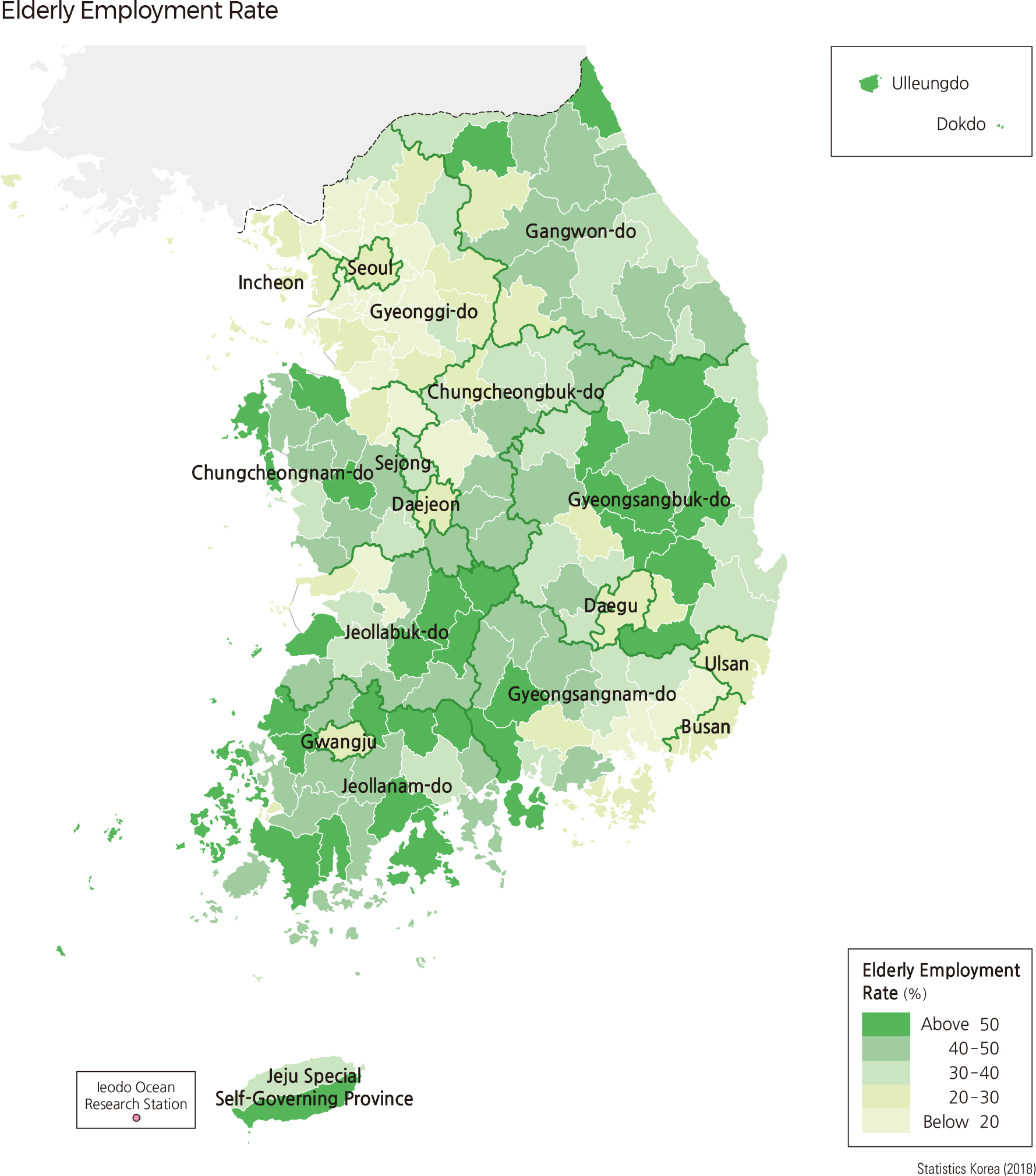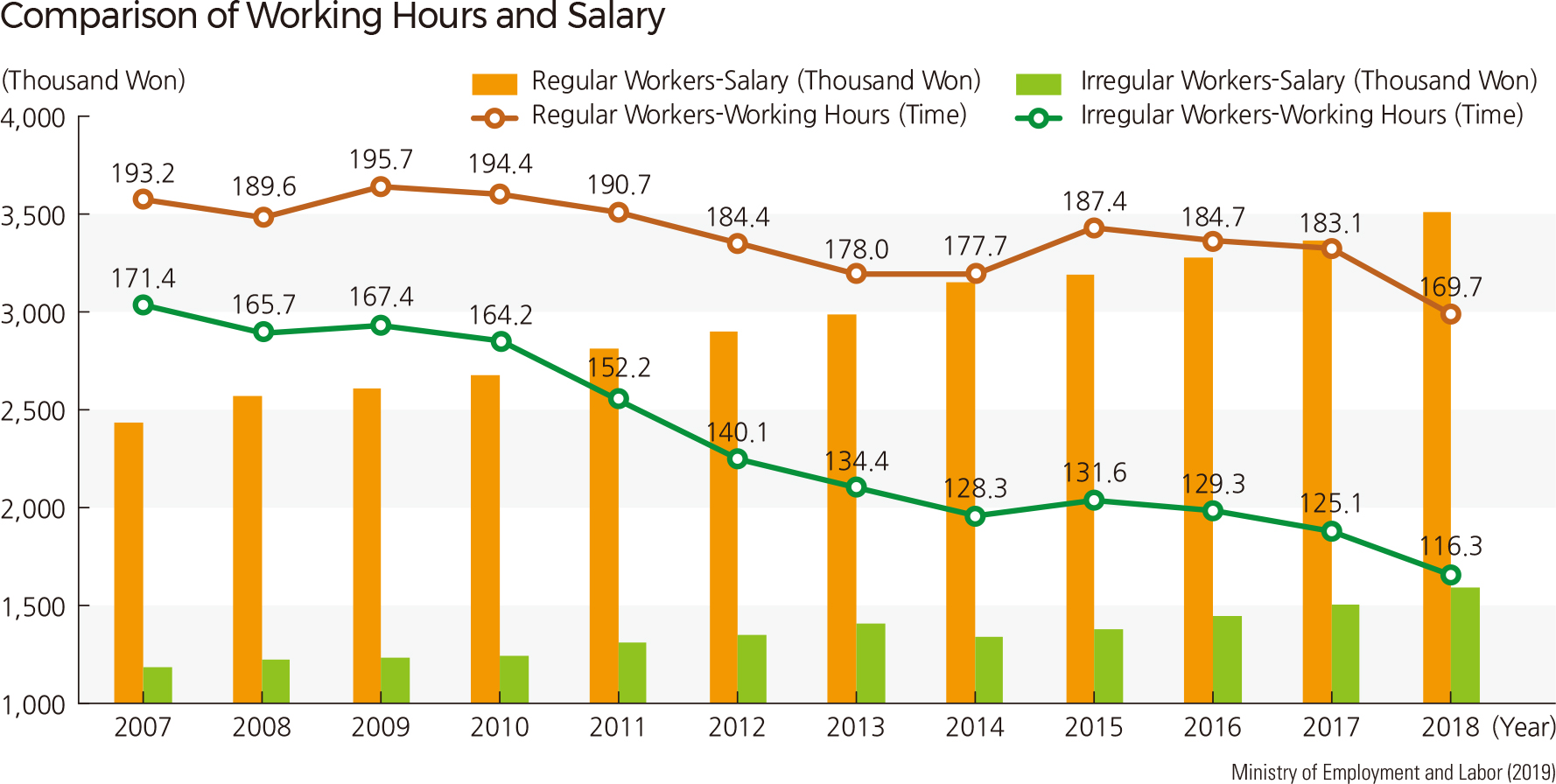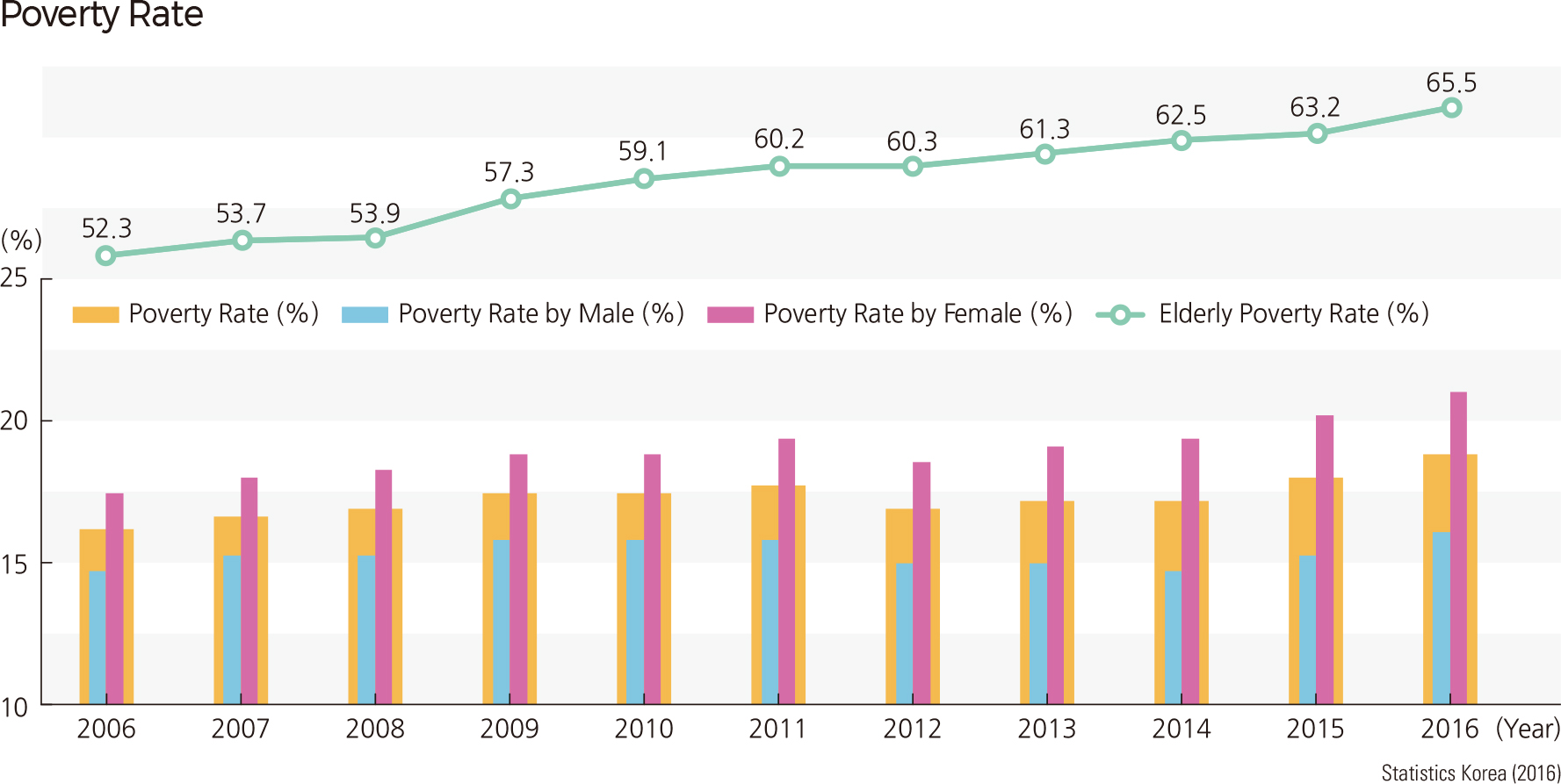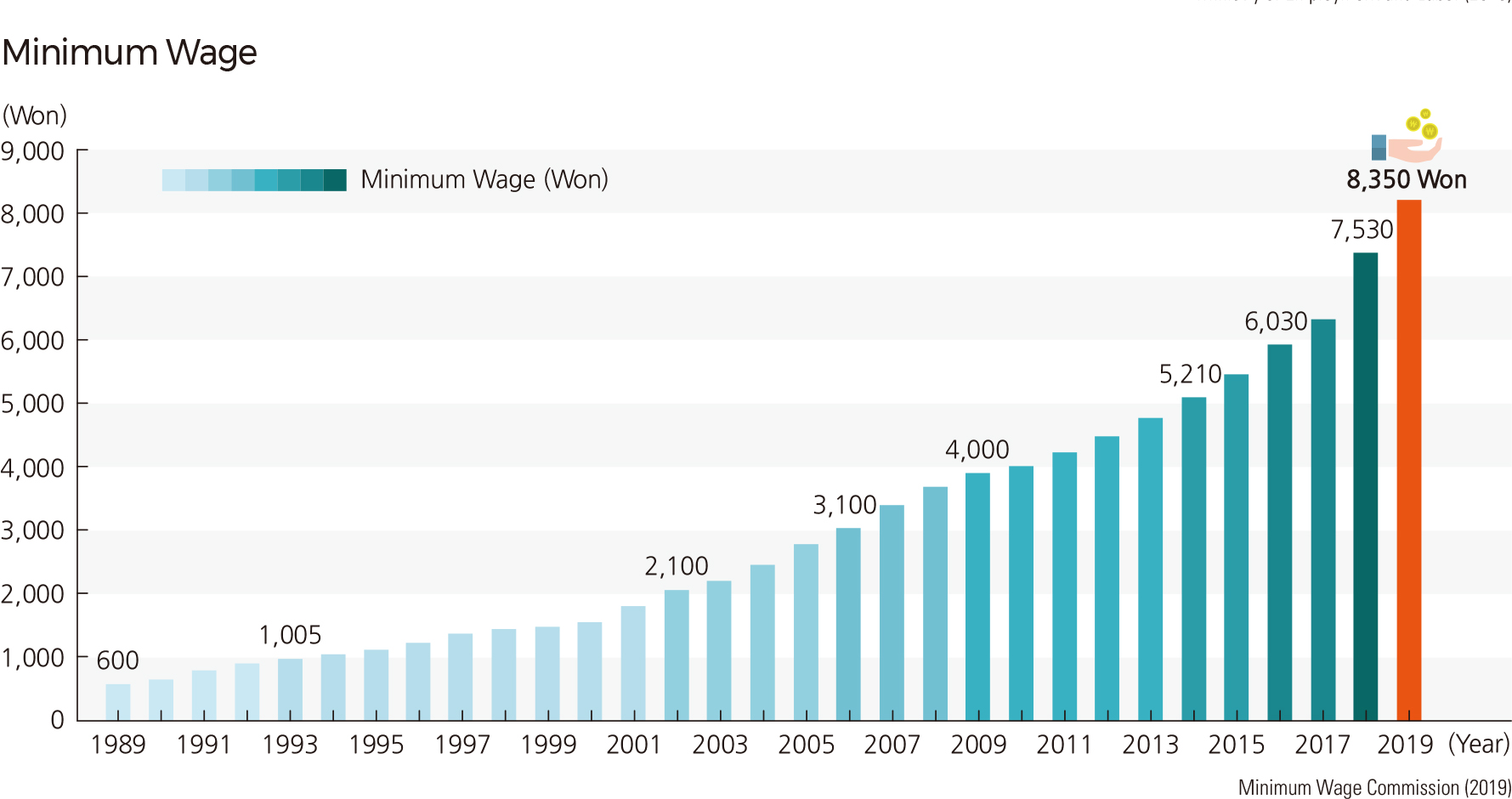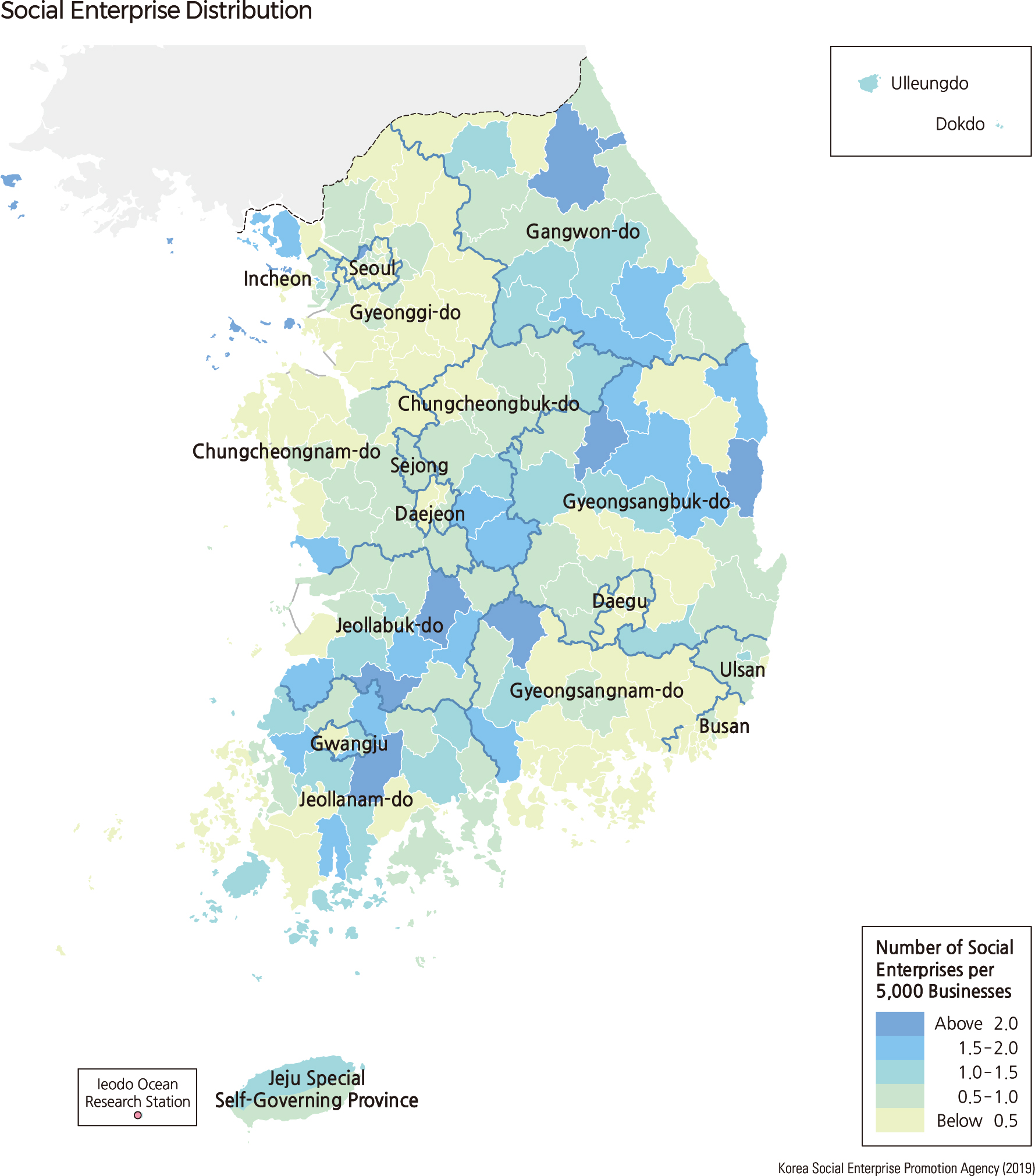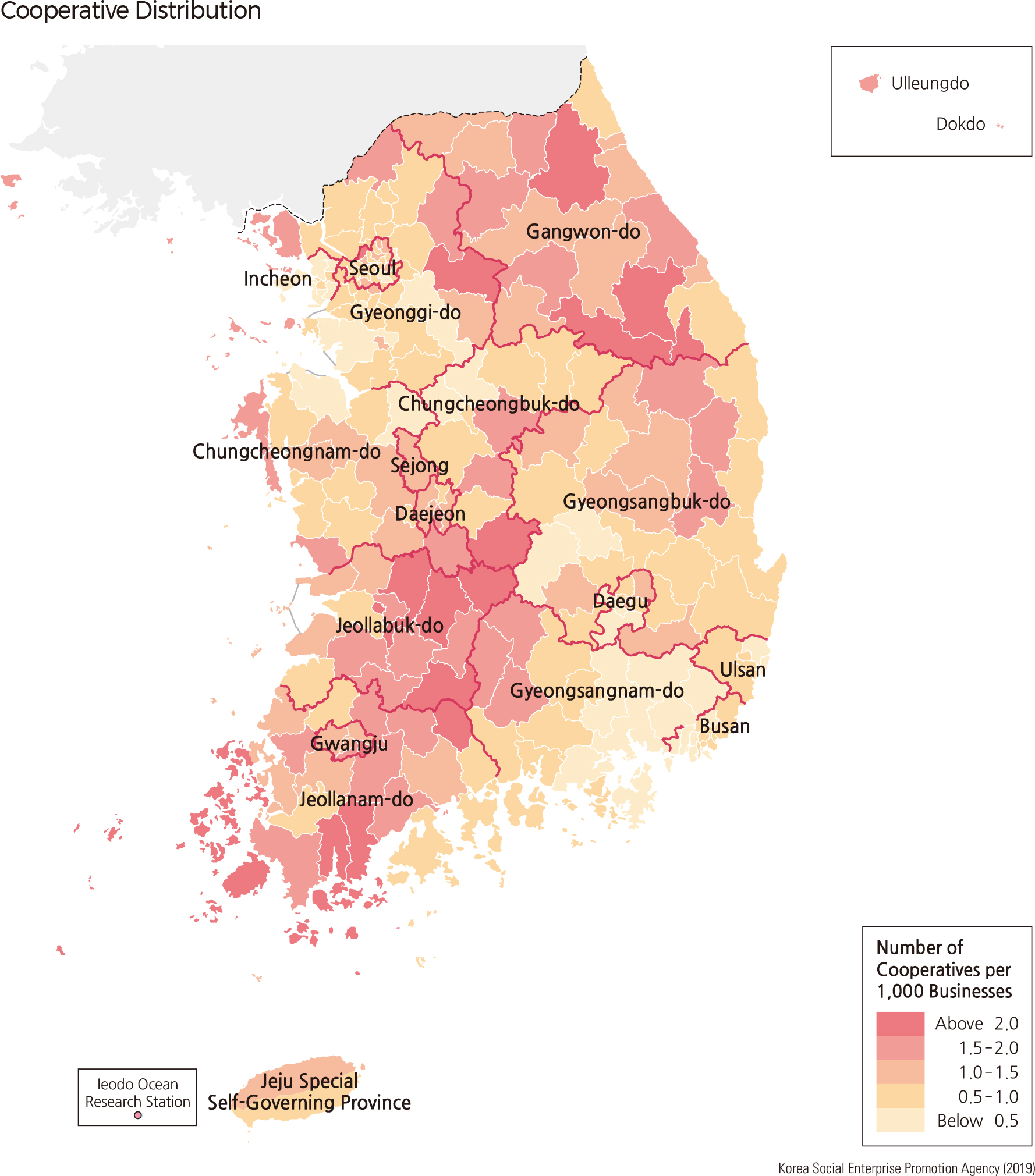English I 2019
The state-led and export-oriented Korean economic development strategies faced a major crisis during the late 1990s. Unemployment skyrocketed as the economy faltered, which led to a rise in poverty. Until the early 2000s, the concept of social economy was not well-known in Korea. It started to draw attention in the 2000s and has now emerged as a major policy issue. There are many definitions of the term “social economy,” but it is commonly agreed that the social economy incorporates economic activities that privilege meeting social needs before profit maximization. It is related to the involvement of disadvantaged communities in the production or consumption of socially useful goods and services. Policy actors around the world are increasingly interested in the social economy to underpin livelihoods and deliver welfare services. In 2006, Korea enacted the Social Enterprise Promotion Act, thus becoming the first Asian nation to legally stipulate the qualifications for social enterprises and to adopt policies for promoting them. Social enterprises and cooperatives can be cited as the representative types of social economy organizations in Korea, and social ventures and impact investments are also growing. Social economy can also be related to the “inclusive growth” discussion, which means that the quality of life is generally enhanced by giving members of society the opportunity to participate in equal economic activities and by the fair distribution of growth benefits. Policies are pushing for a hike in the minimum wage and the conversion of non-regular workers into regular workers to improve equality in the labor market. |
